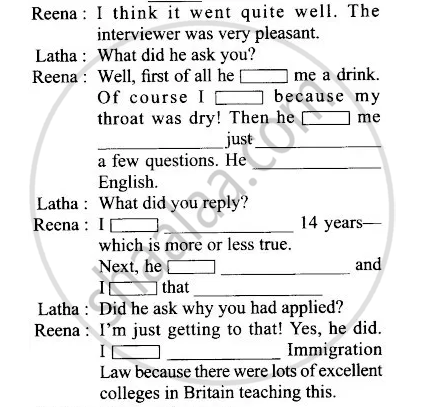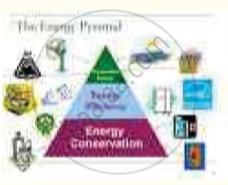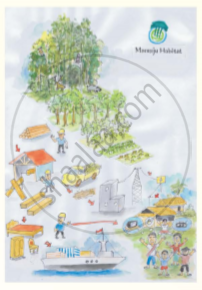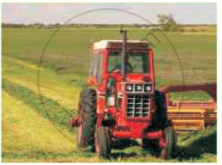Advertisements
Advertisements
Question
Reported speech in Extended practice.
Read the dialogue between Mr Coomer (Mr C), the British Scholarship Officer, and an applicant, Miss Reena Banerjee (R).
Mr C : Come in, Miss Banerjee.
R : Thank you.
Mr C : Please sit down. Can I get you a cup of coffee or a cold drink?
R : Yes thank you. A cold drink, please.
Mr C : I’m just going to ask you a few questions. How long have you been studying English?
R : I’ve had private as well as school lessons for 14 years.
Mr C : Just as background information, what do you do in your spare time?
R : I’ve always enjoyed drama, and also debating.
Mr C : Why do you wish to obtain a scholarship to study in Britain?
R : Well, I’m interested in studying Immigration Law, and there are several good colleges in Britain dealing with his.
Mr C : Very interesting. Finally, do you know that the grant only covers teaching fees?
What about your living expenses?
R : My sister will pay for my personal expenses.
Mr C : Well, Miss Banerjee, we’ll be writing to you next week. Thank you for coming.
Reena meets her friend, Latha, after the interview. She is very excited and tells Latha exactly what happened. Fill in the spaces using reported speech.
Fill in the [boxes] with reporting verbs.


Solution
Reena : I think it went quite well. The interviewer was very pleasant.
Latha : What did he ask you?
Reena : Well, first of all he [offered] me a drink. Of course I [accepted] because my
throat was dry ! Then he [told] me he was just going to ask a few questions.
He asked me how long I had been studying English.
Latha : What did you reply?
Reena : I [replied] that I’d had prwate as well as school lessons for 14 years— which is more or less true.
Next, he [asked] what I did in my spare time and I [replied] I that I had always enjoyed drama and debating.
Latha : Did he ask why you had applied?
Reena : I’mjust getting to that ! Yes, he did. [said] I was interested in studying Immigration Law because there were lots of excellent colleges in Britain teaching this.
Latha : Very good answer.
Reena : Yes, he said it was vevy interesting. Finally, he [warned] me that the grant only covered teaching fees and [asked] me about living expenses. [assured] him that my sister would pay for my personal / living expenses.
Latha : What happens now?
Reena : He said they would be writing to me following week.
Latha : I do hope you get it!
APPEARS IN
RELATED QUESTIONS
Working in groups of four, write the article on the following :
The elderly seek attention and company from younger members of their family. They are eager to listen and long to share their life experiences. John A Pescud is not only respectful but also very patient with Colonel Allyn, Jessie’s father. As a reporter, write an article for a newspaper, on the importance of the elderly in our lives.
Answer the following questions:
Why has the word ‘chatter’ been repeated in the poem?
On the basis of your understanding of the poem, answer the following question
by ticking the correct choice.
The seven roles that a man plays correspond to his __
On the basis of your reading of the poem, complete the following table.
| Stages in the life of the poet | Activities | Consequences |
| Youth | eating toffees ____________ |
____________ |
| Adulthood | ____________ | gazing at the dentist in despair. |
Read the following extract and answer the questions that follow by choosing the
correct options.
I offered to take her in here for a day or two, but she seemed to think it might distress
you.
(a) The Bishop wanted to take Mere Grngoire in because _________.
(i) she was sick.
(ii) she had no money.
(iii) she was unable to pay the rent of her house.
(iv) she was a close friend of Persome.
(b) Persome would be distressed on Mere Gringoire's being taken in because
________
(i) she did not want to help anyone.
(ii) she felt that Mere Gringoire was taking undue advantage of the Bishop.
(iii) she was a self-centred person.
(iv) she would be put to a great deal of inconvenience.
In groups, work on one of the topics mentioned in 8(a)-(g). Research your topic by collecting relevant articles from the print and electronic media (like the National Geographic). Make a power point presentation of 10-12 minutes. You can also use film clippings to enrich your presentation.
(a) SOLAR MISSION
1) To promote the use of solar energy through solar photovoltaic and thermal systems for power generation .
2) To integrate other renewable energy technologies like biomass and wind. 
(b) ENERGY EFFICIENCY
1) To mitigate GHG through sector-specific and cross-cutting technology and fuel switch options.
2) To use more LNG and biomass fuels besides seeking tech transfer. 
(c) SUSTAINABLE HABITAT
1) To promote energy efficiency in the residential and commercial sectors through LPG use.
2) To manage municipal solid waste and urban public transport in a better way. 
(d) WATER MISSION
1) To promote efficient water use, augment supply in critical areas and ensure effective management of water resources.
2) To have better management of surface and groundwater,and conserve wetlands. 
(e) SUSTAINING HIMALAYAS
1) To enhance monitoring and conservation of the Himalayan ecosystems, empower local communities for management of ecological resources and promote sustainable tourism. 
(f) GREEN INDIA
1) To reduce fragmentation of forests, enhance public and private investments for plantation, upscale joint forestry management and promote conservation of biodiversity. Need to afforest degraded lands.

(g) SUSTAINABLE AGRICULTURE :
1) To focus on four crucial areas - dry land agriculture, risk management, access to information and promoting the use of biotechnology.
2) To develop drought and pest resistant varieties. 
Discuss in groups.
- Have you heard a story, seen a film, or read about someone becoming invisible?
- Did he/she use his/her power for good or for evil?
Look at the following pair of sentences. Underline the modals and discuss why each one is used in that sentence.
e.g.
I must not take those pills. (I’m not allowed.)
I need not take those pills. (It is not compulsory but I may if I wish.)
(b) I needn’t go to the meeting if I don’t wish to.
2. (a) I can swim a length of the pool.
(b) I can swim in the pool on Saturdays.
3. (a) You ought to get a nice present for her.
(b) You have to get a nice present for her.
4. (a) Can I go to the toilet?
(b) May I be excused?
5. (a) I may come tomorrow if I have the time.
(b) I might come tomorrow but it’s going to be difficult.
Did you know?
Modals are a small group of verbs that are used to express possibility,
probability, capability, capacity, ability, obligation and predictions.
Some of the modals you learnt in this unit are
can
may
shall
could
might
should
Need, dare, had better are also modals.
Understanding Modals:
Modal Auxiliaries
A modal verb or auxiliary verb is a verb, which modifies another verb, so that
the modified verb has more intention in its expression. In essence the modal
verb expresses modality, the way in which something is being said.
The main modals are
Can: could; may: might; shall: should; will: would: must; ought to; need to;
have to.
The negative modals are
Couldn't; wouldn't; shouldn't; mustn't; needn't; oughtn't/ ought not to
| Modal | Examples | Uses |
| Can/ can't |
She can read and write It can rain today Can I borrow your pen? Can you lend me your notes? Can I carry your books? |
ability possibility /probability seeking permission request offer |
| Could/ couldn't |
Could I borrow your book? Could you please help me with this sum? We could go for a picnic on Sunday I think you could come first this time There was a time when I could work round the clock. |
seeking permission request suggestion possibility/ probability past ability |
| May |
May I have some water? May I help you? May I shut the door? India may become a super power by 2020. May God bless you |
request offer permission possibility/ probability wish/ desire |
| Might | They might sell their house as they need the money. | future possibility/ probability |
| Will /Won't |
It is very cold so I will stay at home. I will help you if you wish. Will you look after my dog for a day? It will rain tonight. I will get you a shawl from Srinagar. |
intention offer request prediction promise |
| Would/Wouldn't |
Would you mind if I come over tonight? Would five o'clock suit you? Yes it would. Would you pass the salt? Would you come to my party? Would you prefer tea or coffee? |
permission making arrangements request invitation preference
|
| Shall |
Shall I help you? Shall we meet at 3.00 pm outside Bakshi Stadium? |
offer making arrangements |
| Should |
We should check the timings of the train. You should listen to the advice of your elders. |
recommended action advice |
| Ought to |
You ought to do your duty. The bus ought to be here any minute |
advice probability |
| Must/mustn't |
We must make a move now. You mustn't tell lies. |
obligation necessity |
| Need |
He need not go to the market. You need to lose weight. I need to get the groceries. |
necessity compulsion insistence |
In pairs, choose one topic from the table in Question 3. Imagine that you and your parents are expressing your views on the topic. Use your notes from the table and write the dialogue that would take place. Make it funny! Share your dialogue with the rest of the class.
Either in groups or individually, make a power-point presentation on either of the two games. Incorporate points from the table above and any other interesting information I detail.
